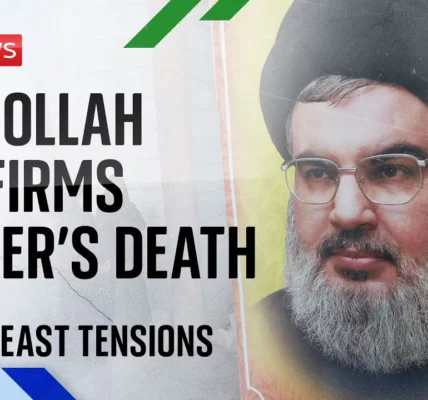Israeli Military Claims Major Success in Lebanon

In a significant escalation of military actions, the Israeli Defense Forces (IDF) recently reported the killing of key Hezbollah commanders in Beirut. This article delves into the details surrounding the air strike, the ongoing conflict, and the potential implications for regional stability.
Introduction
The situation in Lebanon has reached a critical juncture as Israeli military operations intensify. With the IDF claiming responsibility for the deaths of several high-ranking Hezbollah officials, including a commander on the U.S. most wanted list, the air strikes have sparked outrage and fear among the Lebanese population. This article provides a comprehensive overview of the events leading up to this moment, the reactions from various stakeholders, and the potential for further escalation in the region.
Details of the Air Strike
On October 10, 2023, Israeli air strikes targeted southern Beirut, a known stronghold of Hezbollah. Among those killed was Ibrahim Akil, a prominent Hezbollah commander linked to numerous attacks against Israel.
Impact on Civilian Areas
The air strike occurred in a densely populated area, leading to significant civilian casualties and damage to infrastructure. Eyewitness reports described scenes of chaos, with buildings flattened and rescue operations underway.
- Multiple civilians injured, including children.
- Severe damage to residential buildings and local businesses.
- Emergency services overwhelmed by the number of casualties.
Military Justification
The IDF characterized the air strike as a preemptive measure against ongoing terror threats from Hezbollah. Israeli officials claimed that Akil and his associates were plotting further attacks against Israeli civilians at the time of the strike.
Reactions from Lebanon and the International Community
The immediate aftermath of the air strike saw widespread condemnation from the Lebanese government and international human rights organizations. The Lebanese caretaker government labeled the attacks as war crimes and called for urgent international intervention.
Lebanese Government’s Response
Lebanese officials expressed outrage over the air strikes, emphasizing the violation of international humanitarian law. They have called for an emergency session of the United Nations Security Council to address the escalating violence.
International Reactions
Countries and organizations around the world have reacted with concern regarding the ongoing conflict. Key points include:
- Calls for de-escalation from the United Nations.
- Statements from Iran supporting Hezbollah and condemning Israeli actions.
- Concerns from humanitarian organizations regarding civilian casualties and the need for protection of non-combatants.
Long-term Implications for the Region
The air strikes represent a significant shift in the dynamics of the conflict between Israel and Hezbollah. Analysts warn of potential broader implications for the region, including:
Increased Tensions
The military actions have heightened fears of a full-scale war, drawing in various regional powers and potentially destabilizing neighboring countries.
Humanitarian Crisis
The ongoing military conflict has exacerbated the humanitarian situation in Lebanon, where many civilians are already suffering from economic hardship and displacement due to previous conflicts.
Potential for a Regional War
As the situation continues to escalate, experts are concerned that the conflict may spiral into a larger regional war involving multiple factions and external powers, particularly with Hezbollah’s ties to Iran.
Conclusion
The recent Israeli air strike in Beirut marks a critical escalation in the ongoing conflict with Hezbollah, raising significant concerns about civilian safety and regional stability. As tensions continue to mount, the international community must act swiftly to prevent further violence and address the humanitarian crisis unfolding in Lebanon. For continued updates and analysis on this developing situation, stay tuned to our coverage.
Call to Action: For those affected by the crisis or looking to support humanitarian efforts in Lebanon, consider donating to reputable organizations providing aid to civilians in conflict zones.
“`




